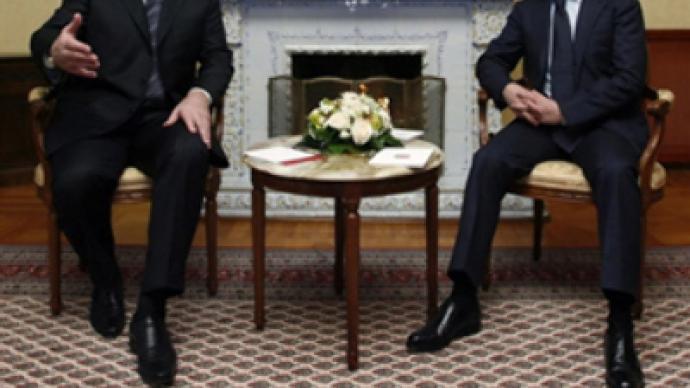Brotherly war

Relations between Russia and Belarus have never been easy, but in recent months it seems the split between the two is growing ever deeper. So what happened between the two staunchest of allies?
It has got so bad that numerous observers have begun talking of the end of the “brotherly” love between the two. In his most recent interview, Aleksandr Lukashenko warned the current situation might lead to “Russia losing Belarus, and Belarus losing Russia.” So who loses whom?
Just last week, Russia imposed a ban on milk imports from Belarus. Minsk accused Russia of blackmailing the country with its trade policies.
Aleksandr Lukashenko lambasted the Russian Finance Minister after Aleksey Kudrin’s comments on the dire state of the Belarusian economy. Kudrin warned that the country could default by the end of this year. Lukashenko was furious and called Kudrin one of the “hoodlums who bark for Western money and teach us how to work.” He went on to say that Belarus is not going to “bow down” or “whine and cry”, and will seek help “in other parts of the world.”
“The key thing that he said is that, ‘we will look in other parts of the world where nobody knows us," underlines Kirill Koktysh, political analyst with the Moscow State University of International Relations. “He realizes that where he’s known, nobody wants to work with him. In Russia he has an image of a man who is unable to negotiate. To a large extent, it’s his own fault.”
All through the year, Aleksandr Lukashenko has been busy making advances to the West. Minsk joined the EU’s Eastern Partnership, which offers six former Soviet states free trade, economic integration and an economic aid alliance. Russia considers this interference with its sphere of influence.
The Belarusian president, often referred to as Europe’s last dictator, described his relations with Russia and Europe as “looking left and right for danger like a pedestrian at a crossing”.
Belarus still enjoys subsidized prices for energy. Something Russia has been striving to change with all the countries in the post-Soviet space. Moscow has already promised more than $2 billion as a stabilization loan to Belarus, but a dispute broke out over the issuing of the next $500 million tranche of the loan. According to Kudrin, Belarus has refused to accept the tranche in rubles. And although Moscow says it has been resolved, fear is the situation might repeat itself. Belarus is now asking for another $9 billion, this time to build a nuclear plant.
According to Koktysh, Moscow is not happy to deal with Lukashenko, but so far they have no other alternative: “Russia will give a loan. The question is on what conditions and when. The devil is in the details.” The fact is that Russia’s ready to go to great lengths and undertake big expenses in order to help Lukashenko. “50% of the country’s budget comes from Russia. And I do not think the Kremlin is very happy about that fact,” explains Koktysh.
Many analysts now doubt that the “Union State” between the two will ever be formed. The countries have been working on its structure since 2003. Recently, Lukashenko warned that the unification of the two states might lead to another Chechnya of the 90s: “We have many rascals here who would be willing to unleash a national liberation war. They only need a reason for it…The empire must rise on new, modern principles. An empire in the finest sense of the word.”
It seems Moscow and Minsk have already refused to endorse political integration and prefer to focus on economic cooperation. “It should not be friendship, but cooperation. Friendship is too sentimental. Sentiments lead to situations like ‘since we are friends, we want better terms on the loan’. They try to get real and be pragmatic,” says Aleksey Makarkin from the Centre of Political Technologies. But are they able to overcome their spats?
Makarkin believes the main problem is that the sides cannot get used to the new reality that “they are two different and independent countries.” Disputes have been brewing for years and are not likely to end. “Belarus will always threaten Russia that it will turn to the West – that’s why it joined the Eastern Partnership. And Russia will toughen its policy in the energy sphere, but ultimately they both know how to reach a compromise. Eventually they always agree, although it’s never easy.”













